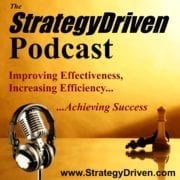4 Ways to Grow Your Business Organically

Growth can be organic or inorganic. Organic growth occurs when you expand from within by getting more clients, offering new products and increasing output while solely relying on your own resources. Expansion begins internally and spreads out naturally. In contrast, inorganic growth is a result of mergers, acquisitions and joint ventures. A company gains access to new markets by taking over or fusing with other businesses.
Some people would argue that organic growth is inherently better than inorganic growth. But each type has a role in the long-term success of an organization. A combination of both often signifies that business is thriving. Even so, organic growth is undeniably more sustainable than its counterpart. If your goal is to grow a small company or start-up, better start bolstering the business from within before adding new locations.
With that in mind, we will focus on organic growth and learn five effective ways to grow your business organically
1. Create a Strong Brand
So, you have an excellent product, a friendly staff, even an eye-catching logo. But without a well-defined and solid company brand, your efforts are useless in the vast ocean of competition. You have to stand out, and your company brand is your rallying point. Remember that your brand goes beyond an emblem and a tagline. It is the entire experience – the products you offer, your customer service, your online presence, the way you treat your clients.
Creating a strong business brand is crucial because it makes your company more recognizable and sets you apart from others. It also builds consumer trust and provides value to your business. Effective branding enables you to cut marketing and advertising costs. Organizations with a unique but honest brand have a much easier job promoting their services to their customers and attracting prospective clients. The main reason for this is people are more likely to choose products from organizations that appear genuine, legitimate and credible. Moreover, a clear and consistent brand puts customers at ease because they already know what to expect from their transaction with you.
Branding is an integral part of your business strategy and helps your staff stay focused on the company goals. A clear brand provides motivation and direction to workers, often leading to high employee retention. Furthermore, it entices quality candidates to join your organization.
For customers to know about your company brand, ensure that your marketing tactics fit your target audience. This step requires a lot of research as you need to figure out how your clients prefer to receive information, but it is worth the effort. Having a well-thought marketing strategy will help you direct your budget on the most effective communication channels. Thus, getting the best results.
2. Build a Strong HR Department
As your business grows, you will need to hire additional people to meet the rising demand for your products or services. Bringing new workers on board means more paperwork, employees’ contracts, job responsibilities, performance assessments. Then, there is always the worry of hiring the wrong people. To address these concerns, you need a robust and able Human Resource department. A well-trained HR staff will not only take care of the paper trail but also manage employee matters.
The HR department has a vital role in choosing the best candidates to fill the positions created by the expansion of your business. Making sure you pursue the recruitment of competent HR staff will improve your recruitment process, diversify your team to increase innovativeness, and reduce, if not eliminate, employee turnover. The staff is also responsible for training and developing talent as well as cultivating leaders.
Although HR primarily focuses on employee relations, it also aids in building the company brand and culture. One of its roles is to forge a strong relationship with your partners and target market by facilitating business meetings, gatherings, conferences and promotional events. Lastly, HR looks after the corporate image and interest of the organization by helping the business comply with labor laws, health and safety regulations, and other government-mandated policies.
3. Ask Clients to Recommend Your Business to Others
Does word-of-mouth marketing really work? The short answer is yes. It is one of the fastest yet cheapest ways to attract and obtain new customers. Many companies go all out to make the overall experience so positive that word-of-mouth happens organically. If your clients had a great experience, they would be willing to promote your products or services to their friends, family, and colleagues for free.
However, merely asking your clients to talk about your offerings may not be enough to support the company. Customers, even happy ones, can be unpredictable and will not always remember to spread information about your business. To spice things up and encourage existing clientele to endorse you, develop a referral program that compensates customers for recommending your products and services. The incentives can include freebies, gift cards, cash backs, product discounts or store credit. A referral program is also an effective way to reward loyal and returning customers.
Finally, do not underestimate the potential of online reviews. Statistics show that 90 percent of customers check online reviews before choosing a business. Furthermore, over 67 percent of consumers’ feedback influences shoppers’ purchasing decisions. With that said, be sure to spend time and effort building your social media presence.
4. Developing Staff
You’ve probably heard it many times, but it’s worth mentioning again: you grow your business by developing your people. A company’s most valuable asset, after all, is its workforce.
Professional development is vital in every organization because it enhances knowledge, hones existing abilities, and teaches new skill sets that help people adapt to changes. It drives innovation and promotes better employee engagement, resulting in higher productivity and profitability. Additionally, developing your team members boosts their morale and increases satisfaction, which allows you to retain the best workers. This can be done using online bespoke training courses, created to specifically improve your employees in the areas of the business you want to grow.
However, employee development does not only focus on career advancement. It has to be complete and holistic. Be sure to include emotional balance, mental growth, and physical health in your program. In addition, provide the workforce with personal and professional development time to focus on self-directed learning.












Leave a Reply
Want to join the discussion?Feel free to contribute!